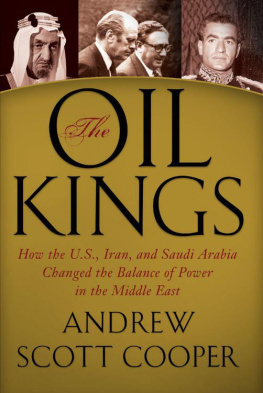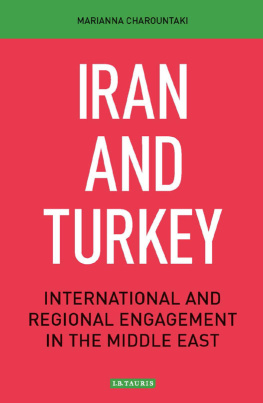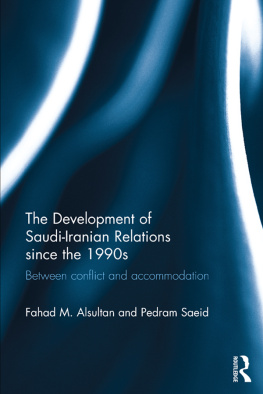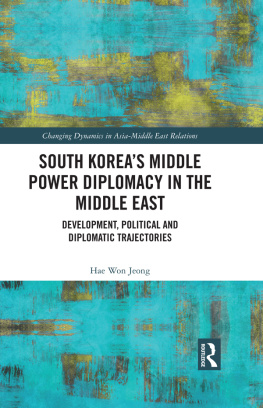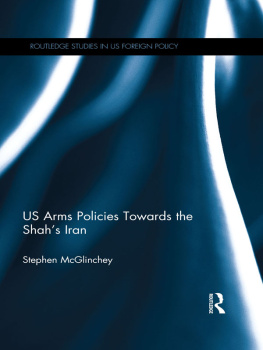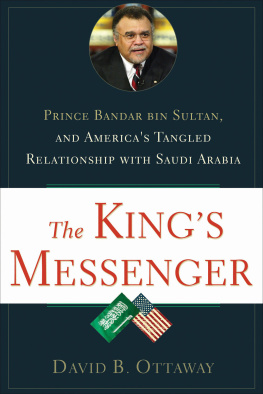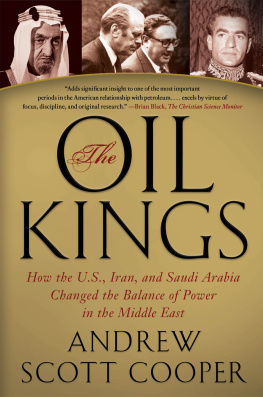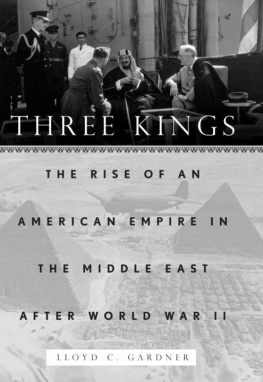





Simon & Schuster
1230 Avenue of the Americas
New York, NY 10020
www.SimonandSchuster.com
Copyright 2011 by Andrew Scott Cooper
All rights reserved, including the right to reproduce this book or portions thereof in any form whatsoever. For information address Simon & Schuster Subsidiary Rights Department, 1230 Avenue of the Americas, New York, NY 10020
First Simon & Schuster hardcover edition August 2011
SIMON & SCHUSTER and colophon are registered trademarks of Simon & Schuster, Inc.
The Simon & Schuster Speakers Bureau can bring authors to your live event. For more information or to book an event, contact the Simon & Schuster Speakers Bureau at 1-866-248-3049 or visit our website at www.simonspeakers.com .
Designed by Ruth Lee-Mui
Manufactured in the United States of America
1 3 5 7 9 10 8 6 4 2
Library of Congress Cataloging-in-Publication Data
Cooper, Andrew Scott.
The oil kings : how the U.S., Iran, and Saudi Arabia changed the balance of power in the Middle East / Andrew Scott Cooper.
p. cm.
Includes bibliographical references and index.
1. United StatesForeign relationsIran. 2. IranForeign relationsUnited States. 3. United StatesForeign relationsSaudi Arabia. 4. Saudi ArabiaForeign relationsUnited States. 5. IranPolitics and government19411979.
6. Petroleum industry and tradeIranHistory20th century. 7. Petroleum industry and tradeSaudi ArabiaHistory20th century. I. Title.
E183.8.I55C66 2011
327.73055dc22 011008319
ISBN 978-1-4391-5517-2
ISBN 978-1-4391-5713-8 (ebook)
To My Family
CONTENTS

INTRODUCTION
whose bitter root
Will only serve to nourish poisoned fruit?
Abolqasem Ferdowsi, The Persian Book of Kings
On November 25, 2006, U.S. vice president Dick Cheney , it should not leave Iraq uninvited.
The price of oil also came up in the vice presidents meeting with Saudi officials. Over the summer of 2006 world energy markets had tightened, driving prices to record levels. Soaring fuel prices threatened Americas to more than $45 billion from $15 billion, surging at a rate not seen since 1974, when the countrys oil revenues tripled, reported The New York Times. The surge in Iranian oil profits was accompanied by a marked upswing in regional tensions and violence that included a ferocious month-long war fought in Lebanon between Israel and Hezbollah, the Shia group whose leaders received political cover and financial and military backing from Tehran. The prospect of President Mahmoud Ahmadinejad using his countrys oil revenues to speed up Irans nuclear program, strengthen the Iranian military, and arm Hezbollah in Lebanon, the radical Hamas Islamic group based in Gaza, and pro-Iranian Shia militias in Iraq, was anathema to officials in Washington and Riyadh. The Saudi royal family had seen this before. Back in the 1970s Shah Mohammad Reza Pahlavi of Iran had been the driving force behind high oil prices that he hoped would transform Iran into an economic and military powerhouse. Only the 1979 Islamic Revolution had put paid to the Shahs ambitions to dominate the Persian Gulf, West Asia, and the Indian Ocean.
Although President Ahmadinejad would have never dared admit it, there were striking parallels between his effort to project Iranian petropower under the guise of pan-Islamism, and the Shahs earlier drive to revive Irans long dormant Persian aspirations. Their strategic visions overlapped in ways that suggested some striking continuities. Both leaders saw Iran as the regional hegemon. They identified oil revenues and nuclear power as the keys to attaining international stature and domestic self-reliance. They relished provoking the same Western powers that at one time had treated Iran like a colonial vassal. Perhaps their most obvious shared trait was a for generous spending to create jobs and increase salaries were politically motivated and fiscally unsound, noted one observer. His budget relied on high oil profits likely to invite inflation. The Iranian central bank proposed a $40 billion fiscal stimulus that included subsidies for families and newlyweds.
Ahmadinejads spendthrift ways presented King Abdullah of Saudi Arabia , Irans economy was perilously exposed to an unexpected price fluctuation in the oil markets. Tehran confidently expected consumer demand for oil to stay high, guaranteeing equally high prices. But what would happen to Irans budget assumptions if oil prices suddenly plunged? Oil-producing countries base their spending plans and financial estimates on oil prices not falling below a certain threshold. If prices do suddenly plunge below that leveland if producers have not left themselves with enough of a financial cushion to absorb the blow from lost export receiptsthe potential exists for a fiscal meltdown. Billions of dollars in anticipated revenue would disappear. Tehran would be forced to economize and decide whether to spend money on guns or butterwhether to lavish aid on Hezbollah and Hamas or to prop up the complex system of food, fuel, housing, and transportation subsidies that keeps Irans middle class in check. Removing the subsidies would increase the potential for protests and clashes between security forces and opposition groups.
Only one country had the means and the motive to engineer a price correction on that scale. With its giant petroleum reserves and untapped production capacity, Saudi Arabia could flood the market by pumping enough surplus crude into the system to break the pricing structure and drive prices back down. The Saudi royal family has always understood that petropower is about more than creating wealth, developing its economy, and preserving power. Oil is also the Saudis primary weapon of national self-defense and the key to their security and survival. Flooding the market is economic warfare on a grand scale, the oil industrys equivalent of dropping the bomb on a rival. A flooded market and lower prices would inevitably result in billions of dollars in lost revenues to the Saudis. However, the threat from Iran was seen as outweighing that loss, and by late 2006 King Abdullah was prepared to tap Saudi oil reserves.
United States would be forced to reduce its consumption of foreign oil and take steps to encourage energy conservation and diversification. Less reliance on Saudi oil would translate into a reduction in Saudi strategic leverage over U.S. policy toward Israel and the Middle East.
On November 29, 2006, four days after Cheneys return to Washington, The Washington Post published an essay by Nawaf Obaid, a prominent security adviser to the Saudi government and adjunct fellow at Washingtons Center for Strategic and International Studies. Obaids article warned that one of the consequences of a sudden U.S. withdrawal from Iraq would be to stop Iranian-backed Shiite militias from butchering Iraqi Sunnis. Obaid reminded his readers that as the economic powerhouse of the Middle East, the birthplace of Islam and the de facto leader of the worlds Sunni community (which comprises 85 percent of Muslims), Saudi Arabia has both the means and religious responsibility to intervene. Buried in Obaids article was a chilling threat that officials back in Tehran could not have failed to miss:
Next page
